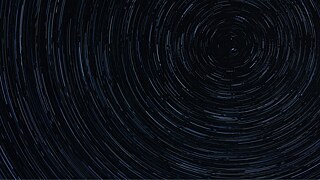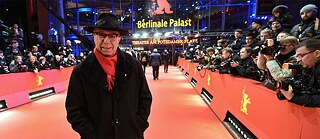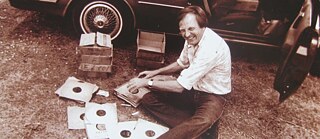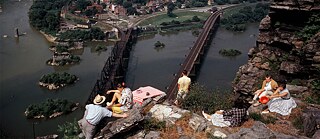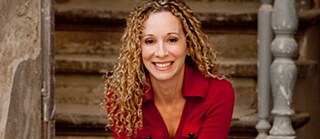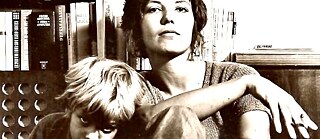Eine Berlinale-Ära geht zu Ende
Dieter Kosslick’s Last Red Carpet Ride
Dieter Kosslick ist einer der bekanntesten Festivaldirektoren der Filmwelt und zugleich einer der geselligsten, amüsantesten und kontroversesten. 18 Jahre lang drückte er den Internationalen Filmfestspielen Berlin seinen Stempel auf – von denen er sich nach der 69. Berlinale 2019 verabschiedete.
Diese Folge anhören: Apple Music | Spotify | Download
Diese Folge stammt von den Kitchen Sisters – das sind Davia Nelson und Nikki Silva. Die beiden produzierten die NPR-Serien „The Keepers“, „Hidden & Kitchens“, „Lost & Found Sound“, „The Sonic Memorial Project“, „The Hidden World of Girls: Girls and the Women They Become“ und den Podcast „The Kitchen Sisters Present…“ für Radiotopia. In diesem Podcast unterhält sich Davia Nelson von den Kitchen Sisters mit Dieter Kosslick und vielen seiner Wegbegleiter*innen, darunter Juliette Binoche, Rudolf Biermann und Mick Jagger. Als Musik ist in dieser Folge zu hören: „Day of the Dead“ von Ted Savarese, mit freundlicher Genehmigung von Ted Savarese; „Clearing Dawn Dance“ von Judd Greenstein, gespielt von yMusic, lizensiert via Good Child Music; „A Nation Divided“ von DJ Spooky und dem Kronos Quartet, lizensiert via Cantaloupe Music; „The Parallax Waltz“ von DJ Spooky und dem Kronos Quartet, lizensiert via Cantaloupe Music; die „Winnetou-Melodie“ von Martin Böttcher, lizensiert via UMG; „Balti“, „Denzel Sprak“ und „When in the West“ von Blue Dot Sessions, lizensiert via Blue Dot Sessions. Das Foto zur Folge zeigt Dieter Kosslick. Außer dieser Episode haben Davia Nelson und Nikki Silva die Folge „The Passion of Chris Strachwitz“ produziert.
Transkript
Davia Nelson: Ask anyone who’s been to The Berlin International Film Festival, The Berlinale they call it, what they remember most about it. Maybe it’s the scale — some 400 films across 14 theaters across 10 days. Maybe it’s the weather — the Festival unfolds across the first weeks of February and Berlin’s piercing cold is legend — but I bet money most will tell you what they remember most is Dieter Kosslick in his black Fedora and red wool scarf on the red carpet at theaters around the city welcoming filmmakers and filmgoers from around the globe to their screenings — film screenings that provoke, pay homage, compete, ignite.
Dieter is one of the film world’s most gregarious, hilarious and controversial Film Festival Directors. He’s put his stamp on this legendary Festival for 18 years and kicked up a lot of dust in the process. This most recent Festival, the 69th Berlinale, was Dieter’s last. Here, for THE BIG POND, Dieter Kosslick’s Last Red Carpet Ride, produced by The Kitchen Sisters.
Dieter Kosslick: I grew up in very a tiny village in South Germany. Like all these tiny villages it was very narrow. I don’t want to say narrow-minded, but it was special-minded. Everybody was controlling — Ja, you had to wear a uniform even if you didn’t wear a uniform, but you had to be like all other people.
My name is Dieter Kosslick. I’m running the Berlinale International Film Festival since 2002.
I grew up as a single boy, a little bit lost in the universe, not in translation, but in the universe.
My father died when I was three months old in an accident in a factory. It was just after the war in 1948 everything was destroyed. My mother had to work and she dropped me each morning in the bakery down basement in the house where I grew up. There was a paradise for me — it had the best smell in my life. My mother was cooking it was always fresh from our little garden. So I had this privilege to have real food.
I was an altar boy from five up to my nineteenth birthday. I was a silent kid up, ja, up to the moment when I got my Fender Stratocaster, then I became loud. Which is actually a great film about guitar players. It Might Be Loud.
[SOUNDS OF CAMERAS, PRESS YELLING]
Dieter Kosslick: It’s the red carpet! Ja and I’m just tacked on the red carpet here.
Christian Bale is doing his press conference.
Crowded like mad.
My name is Dieter Kosslick. I’m running the Berlinale International Film Festival since 2002.
Panicking is a big part of the job. You still get the panic even if you are a professional in the red carpet business.
It’s a new red carpet by the way. Entirely recyclable. It’s from old fisher net and it can be recycled again, so nothing harms the environment.
Tommy Struck: I’m Thomas Struck. My friends call me Tommy. I’m with the Berlin International Film Festival which is celebrating the Bye Bye Edition, or the Bye Bye to Dieter Kosslick who is the head of the film festival for 18 years. I guess I am the oldest ... how do you say, companion in the film world. Before the film he was in local politics in Hamburg, he studied communications. We were a group of disorganized, anarchistic filmmakers looking a for someone who could organize public relations so we said ‘Let’s try Dieter.’ Then he wanted to make a film festival. It was a good film festival, it had the incredible title the European Low Budget Film Festival.
Dieter Kosslick: The history of the Berlinale is a political history. It was founded in 1951 in the Cold War to understand each other in the world. I mean, this is the most important political issue in 1951 and I have to say it is the most important issue now, to understand each other in the world.
Thomas Hailer: Are you aware that it was the Americans founding this festival? This Festival was given to the Berliners by the Americans I’m Thomas Hailer. I’m the Curator of the Festival. Once the Americans had liberated my country. Before they left they started building up this country again. Besides the library, the congress center and all this what we leave. The last step of the Marshall Plan was we also leave a film festival.
[ARCHIVAL: IT WAS MARSHALL’S IDEA IN THE FIRST PLACE. HE’S THE FOREIGN MINISTER OF THE USA. HE SPRANG THE IDEA IN A SPEECH LAST YEAR IN AMERICA. FIRST HE POINTED OUT WHAT A TOUGH TIME ALL EUROPE WAS HAVING ... ]
Sandra Schulberg: The Berlin Film Festival was a creature of the Marshall Plan postwar public diplomacy effort. I’m Sandra Schulberg, founder of Indie Collect. My father Stuart Schulberg and my uncle Bud Schulberg were both part of the Film Photographic Team within the OSS headed by John Ford sent over to Germany with this task of locating Nazi footage that could be used as evidence at the Nuremberg trial. My father made the first Marshall Plan film. In 2004 we did a forty-film retrospective of Marshall Plan Films for the Berlin Film Festival. The Festival was founded it in 1951 to give Berliners a window on the rest of the world and bring the rest of the world to Berlin.
Thomas Hailer: It was postwar Germany, nothing was rebuilt. People were still showing that they had a war behind them. There was a lot of poverty but there was a big hunger, a big hunger for what the world has to bring and what the world has to show.
This festival was nations delegating their films to bring to the Berliners.
The first that won a Golden Bear was a Disney nature documentary about beavers.
[ARCHIVAL: VITAL TO HIS SECURITY IS THE WATER LEVEL IN HIS POND WHICH HE MAINTAINS WITH A TRULY REMARKABLE DAM.]
Host: Guten Abend everyone, good evening. This is so wonderful to be here. I want to pay tribute to this wonderful jury led by the incredibly beautiful and talented Juliette Binoche.
Host: May I ask you something, as head of the jury as far as awards are concerned — are they important?
Juliet Binoche: Well they’re symbols. The Bear, is it real silver?
Dieter Kosslick: It’s much more silver than the Oscar is gold.
[AUDIENCE LAUGHS AND APPLAUDS]
Announcer: Welcome back to the Berlinale, Mr. Roy, Chief Curator of Film at the Museum of Modern Art.
Rajendra Roy: When Dieter took over the film festival there was nervousness, concern to have this new guy, this brash new guy come in. I’m Rajendra Roy. I’m the chief curator film at the Museum of Modern Art. I’m here in Berlin as I am every year for the last 21 years at the Berlin Film Festival. This year I’m on the International Competition Jury.
The first one I was invited to was in ’98. At that point the festival is still in the old west. The Zoo Palast was the main venue. It had a very, very different vibe and spirit. It felt very formal. Very much part of the history of Berlin that was involved in a divided city.
When Dieter took over the film festival there was nervousness, concern to have this new guy, this brash new guy come in. I remember my first year here you would walk in and they would introduce a screening and there’d be a guy dressed in like historic costumes with a horn and he would blow his horn to start the screening and I mean, I was like my God, it’s so serious. Dieter, he could laugh at that.
Rudolf Biermann: This is what Dieter brought to the Berlinale, the logistics, new ideas and the flare. To pursue the studios to bring their movies here the stars to come to this cold weather. Why bother to come to Berlin in to this cold weather but he persuaded them.
I’m Rudolph Biermann, film producer living in Slovakia. In 1989 when the Velvet Revolution started, was a peaceful change of the communist regime to a democratic regime in the former Czechoslovakia. It was Dieter and a group of experts explaining to us from the Eastern countries helping to teach us how to work here. To start to make movies because there is no state company doing it. And we became good friends.
I’m going to this festival every year since 1990 when the border opened when Berlin became one city. The Berlinale was broken. They were living from the past, but the past was famous because it was in West Berlin which was an island between Eastern Germany. They were no marketing, no glamour. I think Dieter understand that. But he people were telling that he’s expanding too much, that there are too many films, too many screens, and its everywhere in Berlin but it’s exactly was the idea — to expand the festival and to bring it to the people new ideas and the flare.
Announcer: Mr. Martin Scorsese and the Rolling Stones!!! Keith Richards, Mick Jagger, Charlie Watts and Ron Wood.
Mick Jagger: We’re very pleased to be here, I’d like to thank Dieter Kosslick, the Director of the Festival very much for inviting us. This is the first time that a documentary concert film like this has ever opened up a festival ... we’re very honored that such a thing could happen to our movie.
Michael Barker: Dieter Kosslick as he greets you on the red carpet, he wears a hat, he wears a red scarf, he has a look. My name is Michael Barker Co-President of Sony Pictures Classics. The thing about Dieter is that he just tries new things. And his gift has to do with putting people together. Filmmakers together with people in the film industry and presenting films as a showman.
Dieter Kosslick: I have done 18 years, 18 Berlinale. We have introduced to the festival each year a kind of special program. The most famous one is Talent Campus. It was just before the invasion of the Americans in Iraq 2002. I was in as a new director and I thought we have to do something. I mean something is wrong at The Berlinale because we don’t have enough young people there and something is wrong in the world because young people have to understand each other.
So, we started to invite 500 young people we paid for this. And invited them to kind winter school like summer school in Sundance. Bring them together with all the people who are on the red carpet. I mean the professionals, the famous people. And learn them that you have to work with people from all over the world if you want to make films.
Bee Thiam Tan: My name is Bee Thiam, I’m the producer of Demons, I’m from Singapore. My first encounter with the Festival is at the Panorama section, I’m doing jury work there it gives me the platform to actually experience a big festival for the first time. Dieter has done so much for cinema in the last 18 years. He has developed Berlin into one of the most important film festivals. It was in the Talents section I discovered a lot of very bright film makers from Asia and given a platform to show their work to the rest of the world here.
Alain Gomis: Dieter, he changed my life as a director. Having me two times in competition was a huge change for me. Alain Gomis, I’m from Senegal. I won the Silver Bear two years ago with my film Félicité. And it was a huge change.
Dian Sastrowardoyo: It seems like we are in a, like a five-star restaurant. It doesn’t look like a tent at all. It’s like a special tent — red and velvet. I’m Dian Sastrowardoyo and I’m an actress from Indonesia. We just screened our movie, Aruna and Her Palate. And right now we are having this dinner and introducing this Indonesian food that was from the film.
Dieter Kosslick: When I took over The Berlinale there was only bad food on the buffets, which I hate anyway. And there was bad wine. And I said, no way. I mean, why should we serve bad food? Ja. We have to do something against this. The Culinary Cinema, when we had this idea to do this as a cinema event during the Berlin film festival we have been always talking about who could be involved in this and who could make really great also international kickoff. Everybody says, you should have Alice Waters. Alice Waters. Yes. Yes. Who can connect Alice Waters? And I said, who is the living internet in the world, It’s Tom Luddy.
Tom Luddy: This is Tom Luddy, I’m Co-Director and Co-Founder of the Telluride Film Festival.
Dieter Kosslick: He is a kind of cinema Red Cross. You can ask him everything. And I called Tom Luddy and I said, by the way, do you know Alice Waters?
Tom Luddy: Yes, I know her very well. I lived with her for several years, I named Chez Panisse and we’re best friends. Noting could be easier I’m just going to call her and get her on the phone.
Dieter Kosslick: And that is what I call the Tom Luddy Action Show. He gave me his cell phone and there was Alice Waters and she was at the airport. I think she thought who is this crazy German who wants to talk with me about Culinary Cinema.
Alice Waters: Dieter told me that he was the first Slow Food member in Germany. They began the organization in Berlin and that, of course, endeared me to him. I’m Alice Waters of Chez Panisse restaurant. And founder of the Edible Schoolyard Project. I was asked to come to Berlin to be part of this Culinary Cinema and its infancy. I knew that Carlo Petrini was going to be there, the President of Slow Food International. I thought, I need to go. It was an experiment. Everybody wanted to get in an eat after the film and it was a small place, kind of chaotic. Chefs coming and cooking for the Culinary Cinema from around the world.
Tommy Struck: Food has a story. Food is nothing abstract. Food is something which is an expression of people. I’m Thomas Struck. I’m in charge Culinary Cinema. That means we connect food and film. Food is always a medium of memory.
Alice Waters: Food and film are an opportunity to feed people ideas.
Davia Nelson: This is Davia Nelson of the Kitchen Sisters. February 8, 2008 at the Berlinale, the screening of Food Inc.
Michael Pollan: My name is Michael Pollan. I’m a journalist. I participated in the making of Food Inc. The film is an attempt to peel back the curtain on the food industry.
Eric Schlosser: I’m Eric Schlosser, one of the co-Producers of Food Inc. It was a real honor and privilege to see this documentary projected on biggest stage in all of Europe in a wild and bizarre East German entertainment palace that was originally commissioned by the Iraqi government. Supposed to be shipped to Iraq in pieces. And at the last minute the Iraqi government refused to pay for it. So instead it was built in East Berlin. It is a kitschy East German Radio City Music Hall. I love it.
Dieter Kosslick: Food is about everything. About land, about land grabbing, about poor people, and farming, chemical fertilizer. It’s about industry. Human rights, about paying people.
The most controversial about me, since the very beginning, film critics are criticizing that I’m doing political cinema. The so-called issue-driven films. This is what they criticize most about me. But I have to say if you run a cultural initiative, and a film festival is a cultural initiative, especially in Berlin because we sell 350,000 tickets and 500,000 times people go in 10 days in cinema. It’s the biggest public-driven film festival in the world. As a director I have to do this with a kind of political statement.
People like George Clooney, Richard Gere, Spike Lee everybody who came here and walked the red carpet suddenly made a statement on the red carpet. Ja. This is really great that it worked like this. Otherwise, by the way it would have been pretty boring, ja.
Alberto Barbera: I’m Alberto Barbera, Director of the Venice Film Festival. As you know, he’s a real fighter against pollution and plastic, climate change. Dieter’s really fighting for something good. Good food, electric cars. He impose Audi to have only electric cars inside the festival. All the cars that are working to transport the guests are electric cars. What he did here in Berlin, there is no other festival in the world that could do that. It should be seen as an example of what all the directors of festivals should do.
Daniela Michel: I am Daniela Michel, I’m the Founding Director of the Morelia Film Festival in Mexico. I come to this festival many, many years. We’ve had the opportunity to celebrate Berlinale Program in Morelia. Dieter was there. He’s been very kind to Mexican filmmakers, to Mexican culture. He’s a mensch.
Dieter Kosslick: 8:00pm, February the 12, 2010. The snow has stopped falling covering the square with an immaculate white carpet. Around 2000 people had gathered in front the Brandenburg Gate which was hidden by a colorful curtain made of recycled billboards of the Berlinale turning the square into an open-air movie theater. Twenty-one years ago, here people were literally tearing down the Berlin Wall. Now they watched a giant patchwork rising to reveal a masterpiece of cinema, Metropolis by Fritz Lang, shown after more than 80 years for the first time in a complete version.
Ute Roche: I’ve just seen a film called Vie in the Native section. Samoa, Tonga, Fiji, very much about women, by seven or eight female directors, which seems to be the central themes this year. Very powerful. Very emotional. My name Ute Roche, and we’re going to see a film about Brecht. It’s a festival film which means anyone and everyone can come. The Federal president and his wife have just walked in and the commission of cultural media is also here. It gives you a great communal feeling sitting in a big cinema watching a film with two thousand people.
Thomas Hailer: Once you pick more than two films, they immediately start talking to each other behind their back. And this is the way, this is the way it goes. This year we have the first A-list festival having seven female directors in competition. And Agnès Varda will come presenting a beautiful new film. This something you wish for, but you can’t force it. It happens and luckily it happened this year. It is the idea that it needs to be more than just a good film or more than just nice talent on the red carpet. There needs to be a deeper sense, there needs to be a bigger story, a bigger narration that leads us through the whole ten days.
Archival: Now we would like to ask Agnès Varda and Festival Director, Dieter Kosslick.
Dieter Kosslick: I’m very proud to give this Berlinale Camera forever, chére Agnès.
Agnes Varda: Thank you Dieter Kosslick. It’s always nice to receive an award, recognition of my work and it’s given with warmth. I know it. As you know I did a film about The Gleaners. I made a film about squatters, my first film was with fisherman. So many important people have light on them and photo and film, so I like to have the feeling that other people deserve to be looked at very carefully. Close up of normal people in the world. We are just fed up with stars selling perfume, selling cars. We like people selling nothing, having big faces on the wall.
Dieter Kosslick: There was one of the greatest documentary filmmakers, Claude Lanzmann, just died. And this was exactly when the peak of the discussion against the refugees in Germany and in Europe and I said, who are these people? Who are these politicians who don’t remember that in 1938 there was a conference in Vichy, of thirty-six states to talk about what to do with the Jewish people who had to run out of the fascist system and they decided we cannot do anything for these people, we have to send them back. And we know where they sent them, ja. And you think, did it happen?
Claude Lanzmann, why did he make Shoah? He made it that we never never ever in our life will do such a thing. And then suddenly all of these people are coming up, ah, these refugees we have to send them back. They are being tortured, they are being killed. They are starving. That is a moment you have really to fight back. You have to fight back with the films. Thank god there are a lot of filmmakers who make films that can fight back.
Announcer: Please welcome the cast and crew of Kindness of Strangers
Dieter Kosslick: I think the most beautiful gift I get out these 18 years is that people really suddenly feel that they are connected to the cinema because this red carpet invited them to go the cinema. The red carpet was before never democratic people didn’t really like go because they thought this was such an elite club. We are not invited to the champagne and we are not invited to the thing, we just have to pay for our ticket. This we really changed in the past 18 years. It’s deconstructed red carpet. This is a big difference to a lot of red carpets I know.
Ja, it was a great new start we had in 2002 and it was a great time, I have to say. It’s a film festival, the first moment of panic never ended because. And now, I’m coming to an end with the 69th Berlinale.
The German translation of good bye is auf wiedersehen and auf wiedersehen means see it again. Nothing is better than you see a film again. So: Auf Wiedersehen, ja.
Davia Nelson: “Dieter Kosslick’s Last Red Carpet Ride” was produced by The Kitchen Sisters (Davia Nelson and Nikki Silva) and mixed by Jim McKee. Produced in collaboration with Nathan Dalton and Brandi Howell for THE BIG POND.
Thanks to the musicians whose music is heard in this story: A Nation Divided & The Parallax Waltz from Rebirth of a Nation by DJ Spooky & Kronos Quartet. Clearing Dawn Dance by Judd Greenstein performed by yMusic. Day of the Dead by Ted Saverese. Balti, When in the West and Denzel Sprak by Blue Dot Sessions. Metropolis Motif recorded in 1927 by Gottfried Huppertz on Vox in Germany. The overture to the soundtrack of Winnetou composed by Martin Böttcher. And the theme music of The Berlinale.
Thanks to all who were interviewed for this story, and especially to Dieter Kosslick and the crack team at The Berlinale. This podcast is dedicated to Dieter and to Agnès Varda, whose spirit graced the 69th Berlinale and the world of film.

